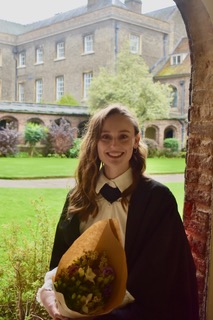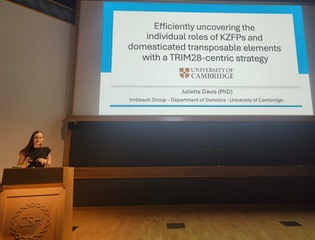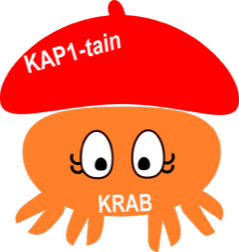Juliette Davis, Postdoctoral Research Associate in the Imbeault Group.
When did you start with the Department?
I started in the department as a rotation student in 2019, then rejoined for my PhD in the summer of 2020. Last year I completed my PhD and now work as a post-doc in order to finish my project.
What are you currently working on?
My work attempts to understand the roles of a large family of DNA binding factors, the KRAB-zinc finger proteins in the human genome. Specifically I am comparing different cell types in order to understand how the activity of these proteins changes at cell-context specific level and link this to the regulation of genes.
How did you get started in science?
I chose to study Genetics at university after a very memorable biology lesson. In this class we were going to be testing our blood types. I remember asking my parents their blood types the night before and trying to work out what I could be based on theirs. Then I remember pricking my finger and watching the reaction between my blood and the antibodies. I still have a photograph of the slide today. Despite choosing a course with a common first year covering all aspects of biology, physiology and ecology. This just confirmed that genetics was the right choice.
What has been a defining moment in your career?
I still feel like I’m quite early in my career so may not have reached the defining moment yet. But I think of a defining moment so far it is probably attending my first international conference. As the majority of my PhD was during Covid restrictions the first conference I attended was during my final year. As our area of research is quite niche it was sometimes difficult to remember the real implications of the work and pursued other people of its importance. I presented a poster at this conference and I remember talking to people and them being excited about the work I’d been doing. This gave me a real motivation boost and since I’ve been able to share my work at more conferences and continue to see the real purpose and impact it could have.
What advice would you give to other women wanting a career in science?
I was quite lucky growing up in that most of my maths and science teachers were strong and intelligent women and so I didn’t see much of a stigma at that age. So I guess my advice would be don’t compare yourself to others, everyone is different and will take a different path to get to where they’re meant to be. Choose what you’re interested in and what you find exciting because at the end of the day if you’re not excited by what you’re learning or working with then why do it.
What are your future goals, for yourself or for women in science?
In recent years there have been great improvements towards equality in the science workspace and it seems to be continuing in the right direction. My personal goals are currently still being decided, I would like to continue in research and find the next project that aligns with my interests in the near future. I would also like to start a family (in the slightly more distant future) and my hope for myself, and for other women in a similar position, is that we can have both of these things.
What is a fun fact about you?
In addition to science I’ve always liked being creative. So I bring this into my work in different ways but specifically when making figures. Early in my PhD I created a little cartoon character of the KRAB-ZFPs that we work on - Kaptain-Krab who is a little crab wearing a beret.



